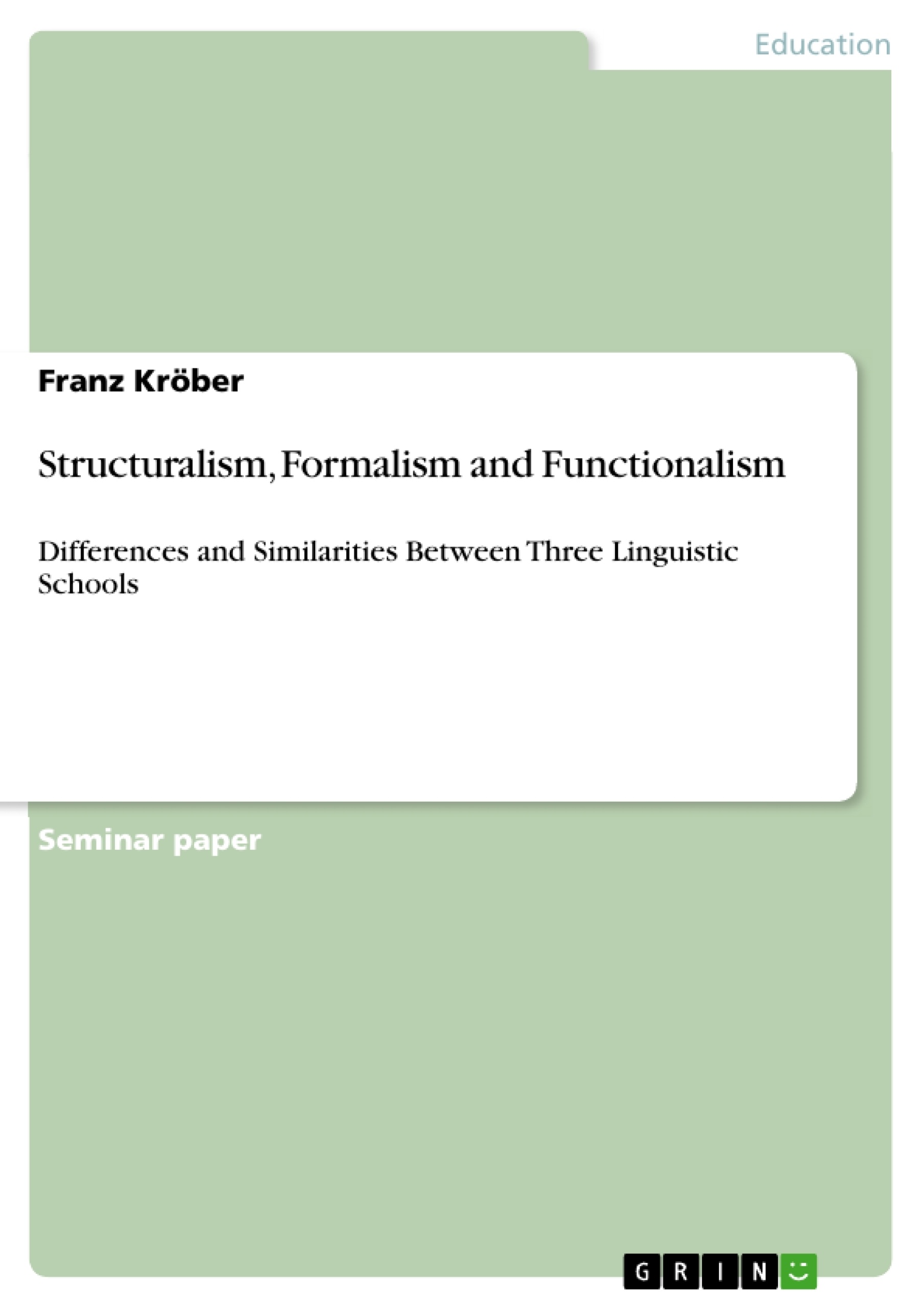Die bedeutensten linguistischen Strömungen des 20. Jahrhunderts sind zweifelsohne der Strukturalismus, Formalismus und Funktionalsismus. Neben knappen aber verständlichen Definitionen dieser drei Strömungen versucht der Aufsatz den grundsätzlichen Übereinstimmungen der Theorien näherzukommen und gleichzeitig ihre jeweiligen Unterschiede zu erklären.
Table of Contents
- An Overview of Three Linguistic Theories and Their Progress
- Comparison between structuralism, formalism and functionalism
- References
Objectives and Key Themes
This essay aims to provide a brief overview of three influential linguistic schools: structuralism, formalism, and functionalism. It outlines their core principles, explores their development, and highlights their key differences.
- Structuralism, founded by Ferdinand de Saussure, emphasizes the systemic nature of language, viewing it as a structured system where the meaning of signs is determined by their relationships within the system.
- Functionalism focuses on the communicative aspects of language, examining how the concrete usage of language in specific contexts shapes its structure and function.
- Formalism, primarily influenced by Noam Chomsky, concentrates on the underlying rules and principles that govern language, particularly in terms of sentence structure and generation.
- The essay explores the contrasting approaches these schools employ in analyzing language, including their views on language acquisition, the nature of the linguistic sign, and the relationship between syntax, semantics, and pragmatics.
- The essay also highlights the similarities and differences between these schools, acknowledging that certain key concepts may be shared across different theoretical frameworks.
Chapter Summaries
An Overview of Three Linguistic Theories and Their Progress
This chapter introduces the three major linguistic schools: structuralism, formalism, and functionalism. It provides a concise overview of each school's key principles and origins. The chapter highlights the influence of Saussure's structuralism on the development of both functionalism and formalism, and emphasizes the complexity and diversity within each school. It also briefly discusses the concept of the linguistic sign and its role in each theory.
Comparison between structuralism, formalism and functionalism
This chapter delves into the key differences and similarities between the three schools. It explores their contrasting approaches to language analysis, specifically focusing on their methodologies, views on language acquisition, and the relationship between syntax, semantics, and pragmatics. The chapter also discusses the idea of an "ideal speaker" and the role of empirical data in each theory.
Keywords
This essay focuses on the main concepts and themes related to three prominent linguistic schools: structuralism, formalism, and functionalism. Key terms explored include: linguistic sign, langue, parole, signifier, signified, arbitrariness, conventionality, functional grammar, generative grammar, Universal Grammar, language acquisition, and the relationship between syntax, semantics, and pragmatics.
- Quote paper
- Franz Kröber (Author), 2010, Structuralism, Formalism and Functionalism, Munich, GRIN Verlag, https://www.grin.com/document/178092




